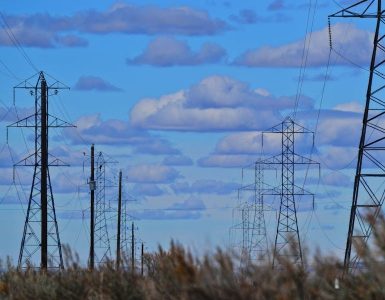Affordable energy is critical to the health and the economy of Arizona. When electric bills rise, poverty levels increase, small businesses close, and employees lose jobs.
If Arizona voters approve a renewable energy initiative measure on the general election ballot, it could be financially devastating for many. Minorities would be particularly hard hit, community leaders said.
Called Proposition 127, the initiative would require public electric utilities to produce 50 percent of their retail sales from renewable sources by 2030. Arizona electric companies say they would have to raise rates to pay for the expensive mandate.
Energy rate hikes are particularly devastating for the poor, widespread research shows.
In Arizona, 23 percent of Hispanics and 25 percent of Blacks live in poverty, compared to 10 percent of Whites, according to the Henry J. Kaiser Family Foundation, a non-profit, non-partisan source of facts, analysis, polling and journalism.
“Low- and fixed-income families will be hit hardest because they have the least capacity to absorb these added expenses,” said David Adame, president and CEO of the non-profit Chicanos Por La Causa that provides services to more than 300,000 needy individuals in three states. “Some Arizona families would be forced to make impossible choices between heating or cooling their homes and purchasing the food, medicine, and other essentials they need.”
Minority community leaders said they support renewable energy, but not at the expense of the poor.
“This ballot measure is written with no understanding of our communities’ needs and hardships, and no care or concern for the repercussions this proposal will have on Phoenix-area families and small businesses,” said George Dean, president and CEO of the non-profit Greater Phoenix Urban League that serves the underprivileged. “If approved, this initiative could double electricity rates for the average household, and possibly much more.”
Nearly a third of U.S. households already have trouble paying energy bills, and the problem mainly impacts racial minorities, says a report released last month by the federal Energy Information Administration. Half of those reporting problems were African American. More than 30 percent were Latino.
A diverse cross section of industry and trade groups, Hispanic and Black chambers of commerce, social service agencies, towns, cities and tribes oppose the initiative because of the negative impact higher electric rates would have on the state’s well-being and economy. More than 100 community groups and 300 elected officials oppose the measure.
Meanwhile, the group backing Prop. 127 has poured a record breaking $18.5 million into Arizona to convince voters to approve it. Proponents claim it will lower electric bills, add jobs and clean the air.
But it could have the opposite effect.
Almost every electric company said it will have to raise rates. Jobs in renewable energy fields may increase but hundreds of others will be lost as power plants close in rural and tribal areas. Palo Verde Nuclear Generating Station, that employs 3,000, also would close, Arizona Public Service officials said.
Most air pollution in Arizona is caused by vehicles not utilities, federal and state emissions data shows. In Maricopa County most energy comes from emissions-free nuclear energy from the Palo Verde Nuclear Generating Station. If Palo Verde shuts down, natural gas plants would likely have to be built to provide sufficient power when renewable is not sufficient. That would deteriorate air quality, not improve it, APS officials said.
Rate increases have already occurred due to utilities having to invest in new and cleaner technology under stricter federal clean energy guidelines adopted in 2013.
“This measure sends the wrong message about Arizona’s business environment,” said Gonzalo de la Melena, president and CEO of the Arizona Hispanic Chamber of Commerce. “It will cost our state thousands of jobs, jeopardize the affordability and reliability of our energy future and weaken the economy we’ve worked hard to rebuild since the recession.”















Add comment